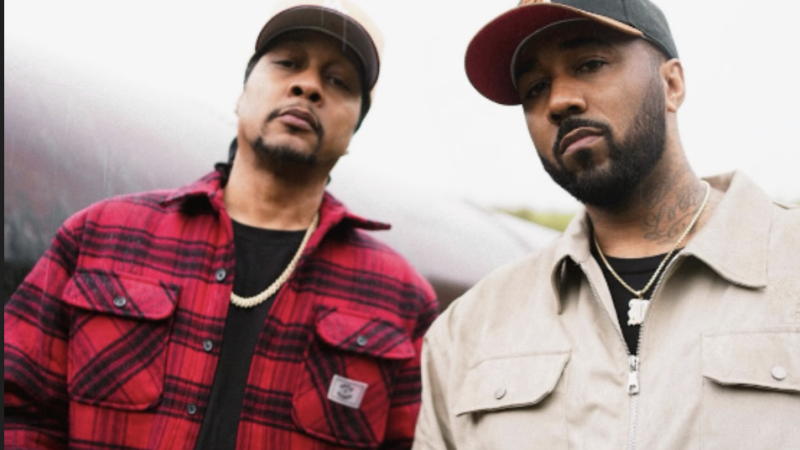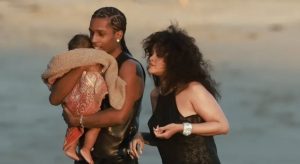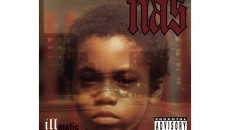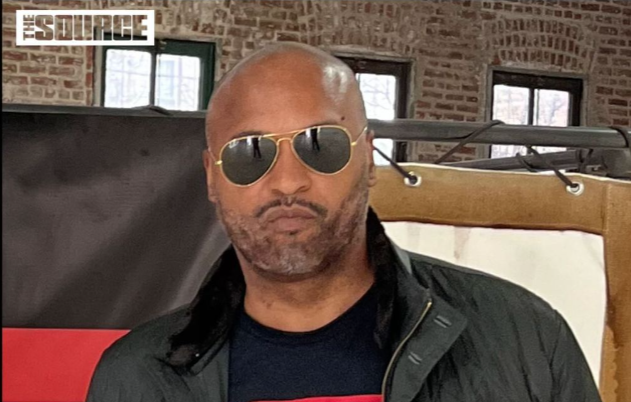Source Alum Miles Marshall Lewis on His New Historic Doc on French Hip-Hop, Moving to Paris and More…
Hip-Hop is a universal language and writer, Miles Marshall Lewis establishes that in his new documentary on the French magazine, Radikal.
When Lewis moved to France in the early 2000s, perhaps he was on a hunt to find something exotic or to master a new adventure. Maybe it was to find another form of culture that spoke to him the way that it is rumored to have spoken to James Baldwin. Whatever the reason was, the experience there moved him so that now he producing a documentary that explores not just national identity, but how it is translated through the most dominant and popular music genre/ culture in the world.
Check out this Source Magazine alum’s new passion in this exclusive
interview with him home mag:
THE SOURCE: Why did you move to
France?
Miles Marshall Lewis: I moved to Paris for a few reasons. I just finished writing my first book, and my starry-eyed view of James Baldwin and Richard Wright was all up in my head. I also had no job after Russell Simmons’s Oneworld magazine folded. If I was about to be a doorman or run an elevator to make money, I figured why not do it in Paris where nobody knows me, and I’d at least have the city to look forward to after work? I had some righteous feelings about the Iraq War too. Most of all, I fell in love with my French ex, who I ended up marrying.
Being from the Bronx, what kind of
culture shock did you experience?
I didn’t move to France straight off of Gun Hill Road, I had already visited Europe a few times by then. But as far as culture shock, the trains don’t run all night long. I didn’t know the language at first. The Whole Foods wave of organic groceries hadn’t hit over there yet, so that stuff was harder to find. And the sun doesn’t set ’til 10:00 in the summertime, that was a surprise.
When you stumbled across Radikal, what impact did it have on you?
I tried to use Radikal as a guide to French Hip-Hop. When I got there, Radikal put rappers like Kool Shen and Booba on the cover, and of course I’d never heard of them. The Source also had a French edition at the time, and I was reading through those too. As a magazine junkie my whole life, the natural thing was to hit [bookstore] WH Smith’s magazine section and live in it until I figured out France’s Hip-Hop music scene.
French Hip-Hop is akin to what wave
of American Hip-Hop?
My film focuses on French Hip-Hop from the ’80s up until when Radikal magazine folds in 2005. That period of time in French rap reflects the same trends going on in American rap. MC Solaar once made records with Guru from Gang Starr, and his style mirrors a jazzy Native Tongues style. Booba goes solo from Lunatic 10 years later and resembles a 50 Cent. Even now, a group like MZ seems a lot like Migos. They take a lot of cues from us.
Why a documentary?
A lot of first-time filmmakers start with documentaries. I felt especially suited for a doc presenting French rap from an American perspective, and my producer Essimi Mévégué had the access to MCs and Hip-Hop magazine editors, so we set it off. The value of Radikal the documentary is in creating a historical record of how impactful the African-American creation that is Hip-Hop culture has been worldwide. France is the second biggest market for Hip-Hop music in the world, so focusing on French rap—rather than German rap or Italian rap—will have the most commercial appeal for the film also.
And as opposed to German or Italian rap, French rap is full of MCs of color—African rappers from French-colonized countries on the continent. Their voices deserve documentation.
It is great to see how expansive Hip-Hop has become and it seems folk like Lewis are at the forefront, breaking down barriers that might exist. To find out more about this project click here.
The post Source Alum Miles Marshall Lewis on His New Historic Doc on French Hip-Hop, Moving to Paris and More… appeared first on The Source.
![[WATCH] Dame Dash Says Biggie And Diddy Copied Him And Jay-Z](https://getknownradio.com/wp-content/uploads/2024/04/Screenshot-2024-04-19-at-11.29.26-AM-800x450.png)




